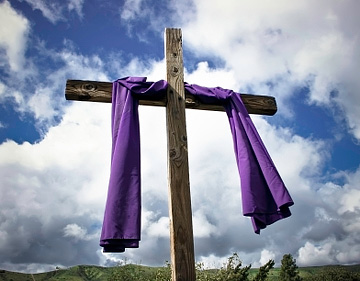Historical Notes
The Season of Lenten is one of Church’s repentance, penance, forgiveness and reconciliation. As her annual spiritual programme, the Church prepares her members for the celebration of Easter. Originally, three distinct groups of the faith community joined this spiritual journey: the Faithful, the Penitentes the Catechumens. The faithful recalled their baptism and did penance, the apostates did penance for reconciliation and the catechumens prepared for initiation into the Church.
Those who publicly denied the faith during persecutions, but later repented and wished to return were called Penitentes. This group existed in three categories. The Libellatici did not really offer sacrifices to gods but only simulated apostasy by obtaining fraudulent certificate of denial of the faith. The Thurificati did throw few grains of incense on the altar of gods as gesture of apostasy. The Sacrificati truly joined pagan cult and shared the sacrificial meal. Together with catechumens and the repented, the ancient Church undertook the Lenten journey toward the new life at Easter.
The Catholic Tradition
Similar to the Penitentes of old, we all received Ash to mark the beginning of the Church’s spiritual journey toward the celebration of Easter. This journey of forty (40) days is basically distinct in its central element of fasting. It is thus inspired by the people of Nineveh who put on sackcloth and ashes and fasted for forty days in response to the warning of Prophet Jonah (cf. Jon 3, 4-5). The forty-day fasts by Moses (Ex 24:18) and Elijah (1 Kgs 19:8) is confirmed by Jesus (Mk 1:13). Each of us too has accused himself or herself in one way or the other in our thoughts, words and deeds.
Relevance of Lent Today
Among the faithful, blatant lies are told; false accusations and witnesses given; individual rights are trampled upon; dishonesty in Church and society; multiple allegiances to spirits and powers for personal and property protection; lukewarm attitudes toward the other’s welfare; false solidarity with political, ethnic, social, religious, cultural sentiments. More and more preachers emerge with less and less witnesses. Much attention is given to externalism, exhibitionism and self-glorification. Quality of life is eroding and being offered on the altar of the quantity of life. Gift offerings are piled on altars to be offered to the Lord while human hearts are hardening and compassion vanishing.
We live in a world where self-sacrifice is seen as a crazy and outmoded spirituality. Domineering leadership is taking over serving leadership. Many are living in the unknown future more than the present. We adorn mere packages and are attracted to containers rather than the contents. People are valued as honourable and respected on account of what they have not who they are. Far from the teaching of the Gospels, the means does not count only when the end is seen good.

Starting the third Christian millennium, Pope John Paul II charged Christians to a compassionate response, recalling: Our world is entering the new millennium burdened by the contradictions of an economic, cultural, and technological progress which offers immense possibilities to a fortunate few, while leaving millions of others not only on the margins of progress but in living conditions far below the minimum demanded by human dignity (Novo Millennio Ineunte n. 50).
He asked: “How can it be that today people still die of hunger, condemned to illiteracy, lack basic medical care, and roof over their heads?” He added: Christians must learn to make their act of faith in Christ by discerning his voice in the cry for help that rises from this world of poverty (ibid).
Lent is an opportunity to train ourselves spiritually; marked by a personal and community effort of attachment to Christ in order that we may be witnesses of His love (Pope Benedict XVI, Lenten Message 2008, n. 6). With the theme: Christ made Himself poor for you (2 Cor 8:9), Pope Benedict dwelt much on almsgiving as part of the armour for the spiritual battle in the season of Lent.
He noted that through almsgiving, we grow in charity and recognize Christ in the poor (ibid) and deepen our Christian vocation. According to him, the source and meaning of almsgiving is Christ, who emptied Himself, taking the form of a slave and being born in human likeness (Phl 2:7).
Lent is personal and communal effort to attach to Christ and to detach from vices. It is opportunity to tackle any lukewarm attitude in faith and discipleship in Christ. We are to strive and overcome multiple allegiances and cheap compromises in matters of faith and morals. To detach ourselves from attractive but degrading situations, Jesus exhorts: cut off and throw away the hand or foot that causes you to stumble…tear and throw away the eye that causes you to stumble (Mat 18, 8).
Lent must help destroy the aspect of life (pars destruens) that hinders spiritual growth, renew the aspect of life (pars renovans) that is contaminated, and acquire new life (pars construens). Lenten fast means: loose the bonds of injustice, undo the thongs of the yoke, let the oppressed go free, and break every yoke; share your bread with the hungry, bring the homeless poor into your house; to cover the naked and not hide yourself from your own kin…Then you shall call, and the Lord will answer; you shall cry for help, and he will say: Here I am (cf. Is 58, 6-9).
To enable us drop what is evil and renew and acquire Christian virtues, the Church highlights both Liturgical Actions and Devotions in Lent. The main liturgical rites are the Eucharistic celebration and Confessions. Popular Devotion of the community is Friday Journey of the Stations of the Cross. We use Scripture: for teaching, for reproof, for correction, and for training in righteousness, so that everyone who belongs to God may be proficient, equipped for every good work (cf. 2 Tim 3:16-17).
Conclusion
For a fruitful celebration of the new life of Easter (cf. 1 Cor 5:7-8) – the Day of the Lord, the Day of the Church and the Eucharist, the Day of our Joy, Rest and Solidarity, the Day of Days and Feast of Feasts—the Church properly and adequately prepares her pilgrim members. Lent takes us to the Banquet Table of the Risen Christ through the spirit of self-emptying. At this Banquet, only those in their baptismal garments are admitted. Lent is when we wash our baptismal garments (Christians) or acquire new ones (Catechumens) for authentic Christian life. Therefore, let us pursue whatever is true, honourable, just, pure, pleasing, commendable, excellent and worthy of praise (Phil 4,8-9).



